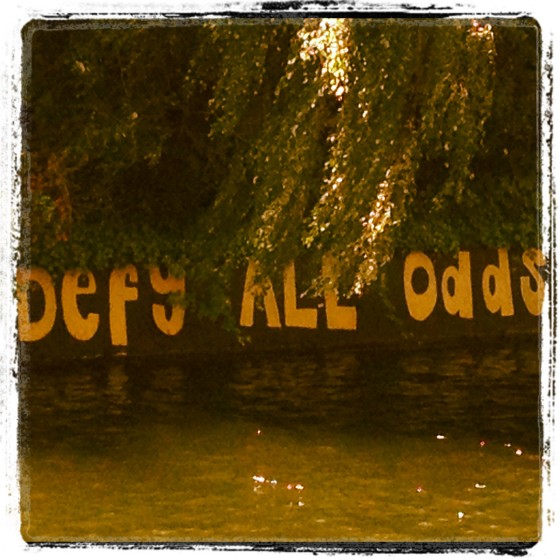
In May of this year, I wrote a post about a story from the early part of my father’s career. In Everybody Has a Story—What’s Yours?, I explained that we all have stories to tell; learning that can help others.
Soon after that post was published, while speaking with a friend in her late 70s about how much I enjoy her attitude and approach to life, she told me her fascinating story. She asked that if I share her story here that I do so without naming her. So, I’ll call her Sophie.
————–
Sophie’s father was from Uzbekistan. He was born in the late 1800s to an extremely wealthy family who owned a cotton plantation. He was taught at home by tutors through age 11, when his parents died and his uncle sent him to military school. He finished his studies in Germany, got married there in 1930, and left in 1931 when they saw the writing on the wall—that Germany was not going to be a safe place to be a Jew.
Sophie’s father raised her with very strict rules including that children did not speak unless spoken to. “One night I forgot to say good night to him. He made me get up and say good night three times.”
When Sophie was eight or nine, and she was living with her family in Paris, it was occupied by the Germans. Sophie’s father spoke fluent German, which helped him survive after a Russian priest gave them papers saying that Sophie and her father were not Jewish, including, specifically that Sophie had been baptized. Sophie’s mom was arrested three times and let go each time because of the “proof” that her husband and child were not Jewish.
When Paris became too dangerous, Sophie was sent to Loire to live on a farm with a family her mother found for her. Living with the farmers, Sophie went to church every Sunday, attended catechism class, and went to confession.
She lived on a part of the farm property where the midwife lived. There were railroad tracks right behind her house. The Germans used that rail line and when the British bombed it, Sophie then lived with a huge hole 20 yards from the house she was staying in.
Again, her residence was deemed too dangerous. Her mother was now wearing the Jewish star that the Nazis required, so she could not travel. Instead, she sent someone to pick Sophie up from Orleans. Every Sunday, Sophie attended church where she would have a paper stamp as proof of her attendance. The papers were later turned over to the Gestapo to “prove” that she was not Jewish.
Sophie lost cousins in the holocaust. They were last seen in 1942. She said that she kept looking for them, looking at faces wherever she went, hoping to find them. It took her a long time to give it up.
Sophie experience gave her a perspective that has helped her to value what’s important and what’s not. “I tell kids, ‘You don’t know how good you have it.’ And I explain to them how we used to have to buy bread at midnight on the black market.”
After the war, at age 17, her mom sent her to London for six months to learn English.
Sophie got married, but it only lasted four years. She decided to move to the U.S., leaving her husband who was unable to live independently from his parents.
In 1958, Sophie tried to get a job at the U.N. because she was tri-lingual. After that didn’t happen, she answered a New York Times ad for an accounting job. On the phone they asked her if she knew the 48 states? She answered, “Yes.” The next day, she headed to the library and studied the states all morning before her interview. She got the job and the rest of her career is history (she’s been in accounting ever since.)
On the personal front, she married, had two sons, and lost her husband when he passed away when her kids were in their teens.
A few Sophie-isms:
If you put your best foot forward, people are willing to help you.
You have to do whatever it takes to teach your children to be the right kind of person. (Sophie sent her son to military school when she decided she was unable to control him.) You can’t worry that your kids will “hate” you. You have to make the tough choices. If your child has hate in their heart, then they will hate you irrespective of what you do in their best interest. This decision won’t be the reason they hate you. It’s there already.
Make decisions. If you make a mistake, it’s yours, not something that happened to you that you have no control over. If it’s a mistake, learn from your experiences.
Take life by the hand and overcome the handicaps that life hands to you.
What do you think? Join the conversation with your comments…
